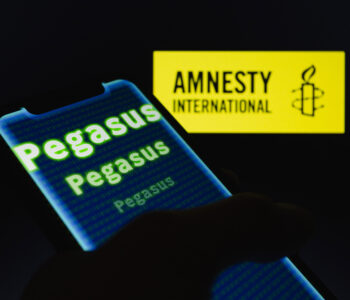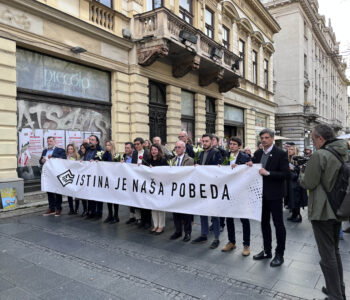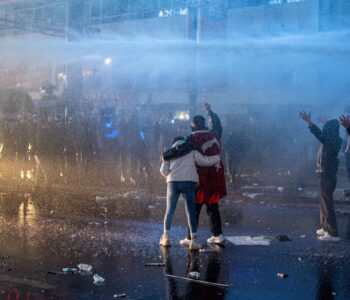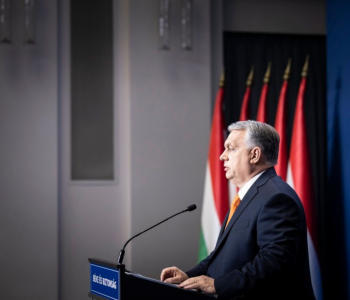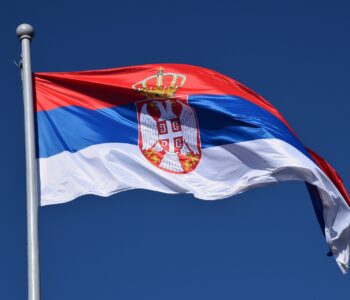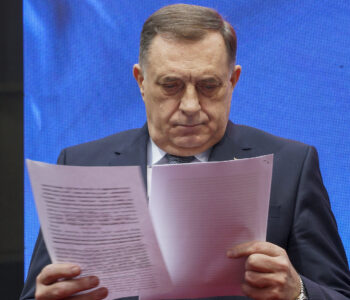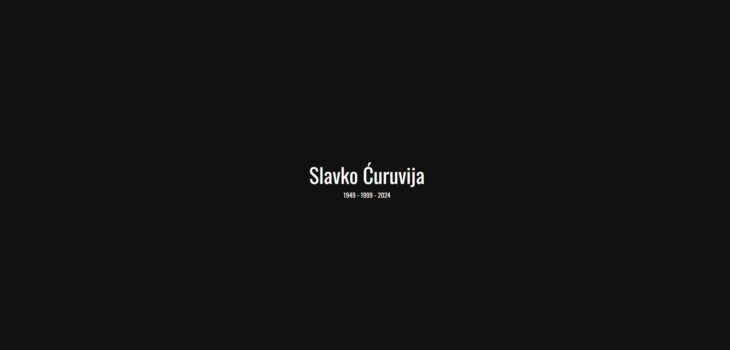
Serbia, no justice for the Ćuruvija murder
Twenty-five years after the murder of journalist Slavko Ćuruvija and nine after the start of the trial against the four accused of the murder, after a first conviction in 2019 and the repetition of the trial, on Monday 5 February the Court of Appeal of Belgrade acquitted the defendants
The news came at the end of a particularly intense day on Friday: a few hours earlier, Serbian President Aleksandar Vučić had announced that, due to the situation in Kosovo, he would request a convocation of the United Nations Security Council. Attention was therefore focused on the events relating to Kosovo and on possible new tensions.
In this context, the news arrived that the Belgrade Court of Appeal acquitted all four defendants accused of the murder of Slavko Ćuruvija.
Ćuruvija, a journalist of great civic spirit, was killed in April 1999 after criticising the regime of Slobodan Milošević and his wife Mira Marković. At that time, Vučić was the Minister of Information.
The four defendants were very prominent figures of the Državna bezbednost (DB), the security agency of the Yugoslav Interior Ministry, heir to the infamous UDBA. Specifically, Radomir Marković was its head at the time, Milan Radonjić was head of the Belgrade department and Ratko Romić and Miroslav Kurak were DB operatives.
The trial of the four began in 2015, thanks to the Commission to investigate the killing of journalists in Serbia . The Commission was created in 2013 by the Serbian government, in which Vučić was then deputy prime minister, as the result of the persistent insistence of Veran Matić, the historic editor-in-chief of B92 at the time of Milošević, who wanted to shed light on the murders of Ćuruvija, Dada Vujasinović and Milan Pantić. At the time of the start of the trial, Vučić himself had said that he would resign if those responsible were not found.
A troubled trial
From the beginning, Ćuruvija’s was defined as a state murder and it was thought that the trial would confirm what everyone knew.
The trial, which began in 2015, saw around a hundred witnesses appear before the judges, although some key figures, such as Milošević’s wife Mira Marković , believed by many to have instigated the murder, were never heard. The investigation only looked at the facilitators and material executors of the murder, without trying to find out who the instigators were, since this would most likely have led to Mira Marković and Slobodan Milošević.
Other key figures, who could have been investigated due to their membership and the role they held at the DB, were instead heard only as witnesses. Numerous witnesses then, during the hearings, had sudden amnesia or changed their initial versions. Over the years, it became known that the inspector who conducted the investigations had been threatened and risked his life .
The first instance sentence was issued in 2019 and the four defendants were sentenced to over one hundred years in prison. In the second instance, however, the sentence was overturned and in September 2019 the Court of Appeal ordered the trial to be repeated. The trial was repeated starting in October 2020 and in December 2021 the Court of First Instance essentially confirmed the previous decision for the four defendants. This sentence, however, was ultimately annulled by last Friday’s acquittal.
The four are therefore considered not guilty and although in principle there is still the possibility of appealing to the Supreme Court, the chances of success are decidedly slim , as the experts have pointed out, and the acquittal of the four defendants cannot be overturned. In any case, on Monday 5 February, the prosecutor’s office made it clear that it intended to appeal to the Supreme Court.
An announced decision
The acquittal is a tombstone on the chances of justice in the Ćuruvija case. But it is a decision that did not come entirely unexpectedly. Although it was only announced last Friday, it seems that it had already been taken for some time.
Veran Matić himself, in the spring of last year, had implied that the Court of Appeal had already ruled on the case of the four defendants. In September, Matić himself and the Ćuruvija Foundation had written that in fact the sentence had already been issued and that the Court had acquitted the four defendants. This despite the fact that the sentence had not yet been published, as they were waiting for the most appropriate moment to make it public . The same invitation to publish the sentence was then reiterated by the Ćuruvija Foundation in November last year.
The authorities gave no explanation as to why the publication of the ruling was delayed for so many months. It is possible that the street protests against the government and the heated electoral climate were the elements that recommended delaying the publication of the sentence, so as not to further exacerbate tensions.
The reactions and protests
Despite the content of the sentence having been widely anticipated and the fact that the news was communicated just before the weekend, the acquittal decision still caused quite a stir in Serbia.
Perica Gunjić of the Ćuruvija Foundation is lapidary: “The decision is scandalous and represents a defeat not only for journalists and freedom of the press, but for the entire independence of the judicial system and for the democratisation process itself”.
Regarding the trial, Gunjić comments that “the court during the entire trial made many strange decisions, which indicated that something was wrong. The two first instance decisions were written in an approximate manner, as if there was the intention to have them annulled in the second instance”. This decision, concludes Gunjić, represents an “immediate return to the 90s, to the darkest period of the new history of Serbia, to the times of wars, to the times of Slobodan Milošević”.
Matić then commented that both the political will and the role of the institutions have failed, especially as regards the judicial sector, which in fact remains anchored to the 1990s.
Matić himself then commented that in the next few days he will discuss the future of the commission investigating the killing of journalists and whether it still makes sense for it to exist. The European Union, OSCE and numerous other members of the diplomatic community expressed their disappointment at the acquittal.
Furthermore, on Monday 5 February, a protest was held in front of the Court of Appeal in Belgrade, organised by journalists’ associations: the demonstrators were silent for 25 minutes in front of the Court, symbolising 25 years of silence since the Ćuruvija murder.
The reactions of the judicial and political world
On Monday 5, the President of the Court of Appeal of Belgrade published a statement in which, while he understands the dissatisfaction of Ćuruvija’s family and friends, he specified that the Court judged on the basis of the evidence contained in the case which was not sufficient to support the prosecution’s thesis.
Prime Minister Ana Brnabić said she could not comment on the Court’s decision as the judiciary is independent. Brnabić stressed how the proceedings had only begun 16 years after the assassination, thanks to Vučić’s coming to power. As a citizen, however, she said she will seek justice.
The Minister of Justice, Maja Popović, however, said she was deeply disappointed by the decision of the Court of Appeal, saying that the judicial system had not carried out its function. Vučić himself said late in the evening of February 5 that he was shocked by the decision, which is a great injustice and a terribly serious matter for the country.
The predominant feeling among those who followed the trial is one of anger and helplessness, but at the same time there is a dark awareness that the forces that dominated Serbia during the 1990s are still at work, as pointed out by Jelena Ćuruvija, the daughter of the murdered journalist .
Symbolically, the day after the acquittal, early in the morning on the pro-government television Pink, Aleksandar Vulin, former director of the BIA – the the agency that replaced the DB – and former leading member of Mira Marković’s party in the 1990s, openly declared that his generation’s task is to bring together all Serbs wherever they live and that this process has already begun and cannot be stopped.
These words closely echo the idea of Greater Serbia and bring the 1990s back to mind.
This statement was coordinated by the Media Freedom Rapid Response (MFRR), a Europe-wide mechanism which tracks, monitors and responds to violations of press and media freedom in EU Member States and candidate countries.

